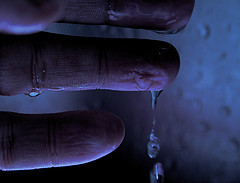|
Vitamin D Depression - An emerging type of depression?Could Vitamin D Depression become an official type of depression? Could there actually be some truth to the “rainy day blues”? Many of us feel “down in the dumps” during the winter months, or on rainy days.  Studies indicate this may actually be a result of inadequate amounts of Vitamin D.
Studies indicate this may actually be a result of inadequate amounts of Vitamin D.Many studies have been done connecting Vitamin D deficiency to depression. The most popular connection is Seasonal Affective Disorder and its connection to Vitamin D deficiency and Vitamin D therapies. Seasonal Affective Disorder, also known as SAD, is a type of depression that typically occurs during the winter months. The shorter days and the lack of sunshine could be the cause of this type of depression, as sunshine is a primary source for Vitamin D. Vitamin D is often known as the Sunshine Vitamin. When the UV rays in sunlight hit our skin, they trigger synthesis of Vitamin D in our bodies! Sunshine isn’t the only way we can get Vitamin D, however, we can also take a daily vitamin or supplement, or eat foods high in Vitamin D. Although Vitamin D is tough to find in foods, the best food sources are Salmon, tuna, various fish and fish liver oils, and dairy products. Vitamin D depression symptoms would be similar to any other types of depression symptoms, however, there are additional symptoms related to vitamin D deficiency including bone pain and muscle weakness. The best way to find out if you are at risk for Vitamin D depression, or depression caused by insufficient amounts of Vitamin D, is to get your Vitamin D levels tested. If your vitamin d levels indicate you are deficient, and you are experiencing symptoms of depression, increasing your levels of Vitamin D may result in an uplifting of your mood and do wonders for your overall health! People who take Vitamin D often report their depression symptoms subside, their energy increases, and their overall health improves. If you have any experience taking vitamin D, please feel free to share in the comments below! Click here for more information about Vitamin D depression, as well as other vitamins that may contribute to the effects of depression.
|
